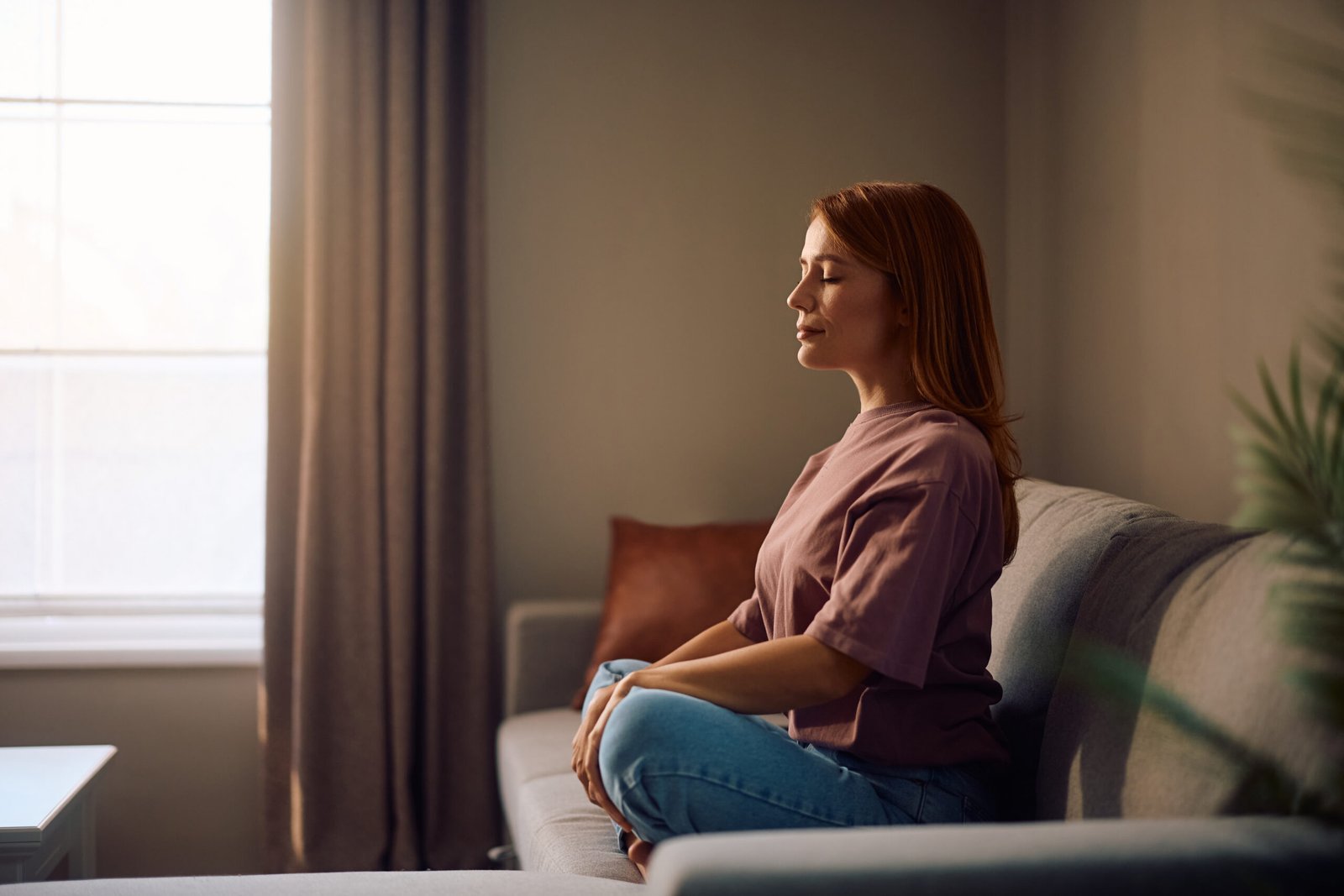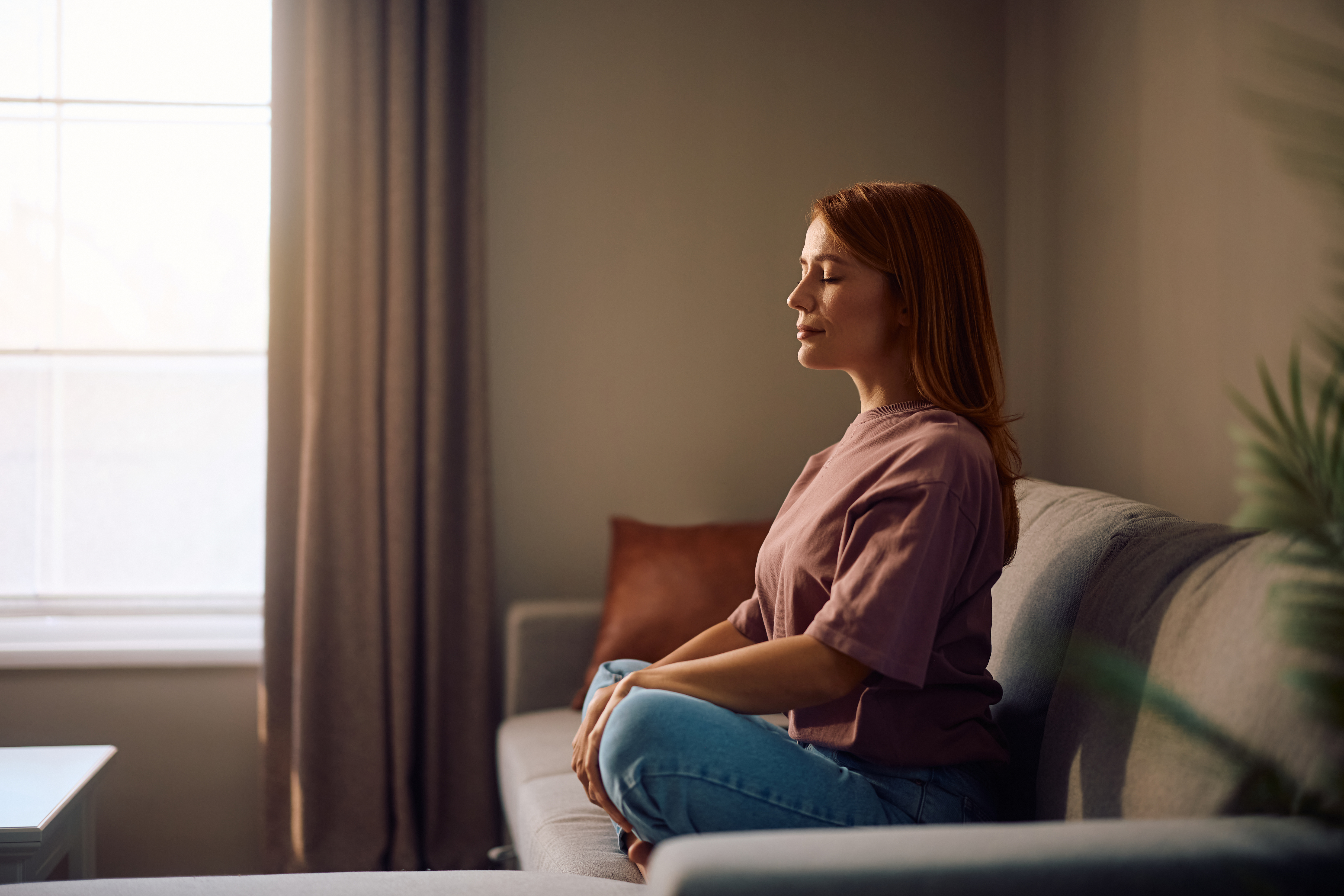
Woman with eyes closed meditating at home. Copy space.
Breaking the Cycle: How Emotional Clarity Leads to Freedom from Food Guilt
You know that feeling of guilt after eating, where emotions seem to spiral out of control? It’s not just about food—it’s about the tangled web of emotions beneath. Imagine breaking free from that cycle. Emotional clarity is your key to unlocking freedom from food guilt, and our 90-day program at VK Circle offers you a safe, supportive path. Ready to embrace self-love and ditch the diets? Join us as we explore how emotional coaching can transform your relationship with food and yourself. For further reading, check out this resource.
Breaking the Cycle: How Emotional Clarity Leads to Freedom from Food Guilt
You know that feeling of guilt after eating, where emotions seem to spiral out of control? It’s not just about food—it’s about the tangled web of emotions beneath. Imagine breaking free from that cycle. Emotional clarity is your key to unlocking freedom from food guilt, and our 90-day program at VK Circle offers you a safe, supportive path. Ready to embrace self-love and ditch the diets? Join us as we explore how emotional coaching can transform your relationship with food and yourself.
Understanding Emotional Clarity

Emotional clarity is about understanding your feelings and the reasons behind them. It’s a crucial step toward breaking free from food-related guilt and patterns. By recognizing and addressing emotions, individuals can create a healthier relationship with eating habits.
The Roots of Food Guilt
Food guilt often stems from societal pressures and personal expectations. It’s a complex mix of shame and regret that can manifest in various ways. For many, it begins with cultural norms and ideals about body image. This pressure can lead to negative self-perception.
Personal expectations: Many individuals set unrealistic dietary goals. Failure to meet these goals can trigger feelings of inadequacy.
Emotional triggers: Stress, loneliness, or sadness can prompt overeating. This behavior then leads to guilt and regret.
Social influences: Family, friends, and media often perpetuate ideal body standards. This adds more layers to the existing guilt.
Addressing these roots involves understanding why these feelings arise. This insight can help in developing effective coping strategies. Learn more about food guilt and how societal and personal factors can contribute.
Emotional Clarity as a Key
Achieving emotional clarity is essential for overcoming food guilt. It empowers individuals to identify and process their feelings. This process involves several steps:
Self-reflection: Regularly assess your thoughts and emotions. Journaling can be a helpful tool for this.
Mindfulness practices: Engage in activities like meditation or yoga. These practices can help in staying present and aware.
Seeking support: Talking to a coach or therapist can provide guidance. They can offer new perspectives and coping mechanisms.
Emotional clarity can transform your relationship with food. By understanding emotions, individuals can make healthier choices. Explore this guide on emotional eating and how mindfulness can support emotional clarity.
Breaking Free from Emotional Eating

Breaking free from emotional eating requires practical tools and support. This journey involves cultivating self-love and seeking emotional coaching. These steps can guide individuals toward a healthier relationship with food.
Tools for Self-Love
Self-love is a critical aspect of overcoming emotional eating. It involves accepting and valuing oneself, flaws and all. Here are some ways to nurture self-love:
Affirmations: Practice positive affirmations daily. They can boost self-esteem and promote a positive mindset.
Gratitude journaling: Write down things you’re grateful for each day. This can shift focus from negativity to positivity.
Self-care routines: Engage in activities that bring joy and relaxation. This could be reading, taking a bath, or enjoying a hobby.
Building self-love takes time and patience. These tools can help create a strong foundation for emotional well-being. Self-love practices can significantly influence emotional health.
The Power of Emotional Coaching
Emotional coaching offers personalized support and guidance. It’s a non-clinical approach focused on emotional healing. Here’s what emotional coaching entails:
Personalized sessions: Coaches tailor sessions to individual needs. This ensures targeted support and guidance.
Emotional awareness exercises: These help in identifying and processing feelings. Increased awareness leads to better emotional regulation.
Goal setting: Coaches assist in setting realistic, achievable goals. This creates a clear path toward emotional freedom.
Emotional coaching provides the tools needed for self-awareness and personal growth. It empowers individuals to make lasting changes in their eating habits. Discover more about emotional coaching and how it can support emotional well-being.
The VK Circle 90-Day Program
VK Circle’s 90-day program offers a structured approach to achieving freedom from food guilt. It combines emotional coaching and community support to foster emotional clarity.
A Path to Freedom from Food Guilt
The 90-day program focuses on emotional clarity and self-love. It provides participants with the tools needed to overcome food guilt:
Weekly coaching sessions: These sessions offer personalized support and guidance. Coaches help participants navigate emotional challenges.
Self-reflection exercises: Participants engage in activities like journaling. This encourages introspection and emotional clarity.
Community support: The program fosters a sense of belonging. Participants share experiences and support each other’s journeys.
The program is designed to empower individuals to break free from food guilt. By focusing on emotional clarity, participants can achieve lasting change. Learn more about VK Circle’s approach to emotional clarity and self-love.
Embracing a Supportive Community
Community support is a vital component of the VK Circle program. It offers participants a safe space to share and grow. Here’s how the community aspect works:
Group sessions: Participants engage in regular group meetings. These sessions provide a supportive environment for sharing experiences.
Peer support: Participants connect with others facing similar challenges. This fosters understanding and empathy.
Resource sharing: The community shares tools and strategies for emotional well-being. This collective wisdom enriches the individual experience.
The VK Circle community is a nurturing space for emotional growth. It empowers participants to support one another on their journey to freedom from food guilt. Explore the benefits of joining a supportive community.
🌟 Sign up now for a free discovery call and start your journey towards emotional freedom and self-worth. 🌟



